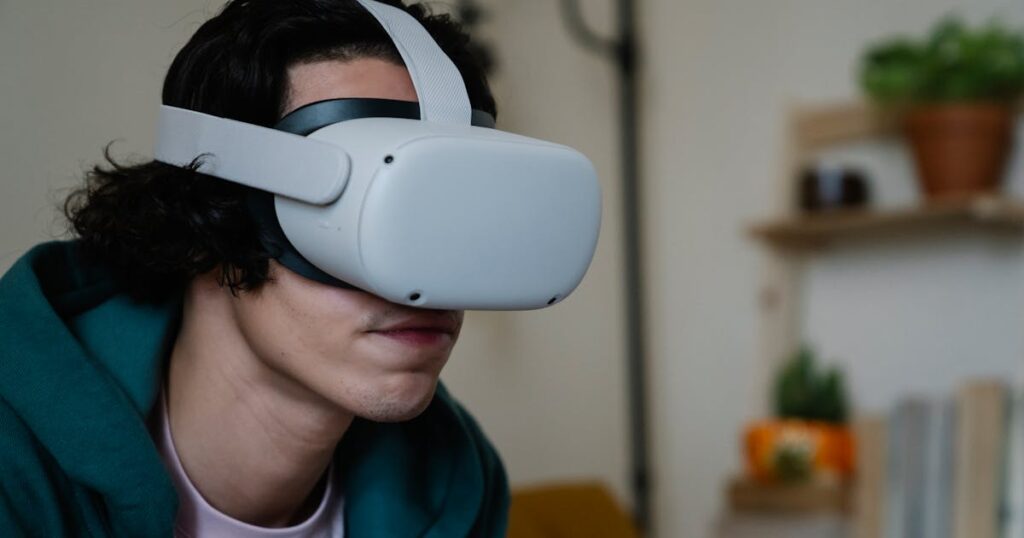Key takeaway: The key takeaway from exploring smart home technology solutions is the incredible potential these systems have to enhance our daily lives, making our living environments more efficient, secure, and enjoyable.
With the ability to customize and control various aspects of our homes—from lighting and temperature to security and entertainment—smart home technology promises a future where our homes are not just places to live, but partners in our quest for a balanced, sustainable, and joyful lifestyle.
Whether you're deeply embedded in the digital age or just starting to explore what smart home technologies can offer, the benefits of integrating these solutions into your home are undeniable, fostering a sense of community, wellness, and connection in every corner of our living spaces.

Welcome to our guide on smart home technology solutions! In today’s fast-paced world, technology has become an essential part of our daily lives. From smartphones to virtual assistants, we are surrounded by gadgets and devices that make our lives easier and more efficient. One such technological advancement that has gained popularity in recent years is the concept of a “smart home”. But what exactly is a smart home? Let’s dive in and find out.
What Is a Smart Home?
A smart home, also known as a connected home, refers to the use of internet-connected devices and appliances that can be remotely controlled or automated. These devices are typically integrated into a central system, allowing homeowners to control various aspects of their homes through a single interface. This includes lighting, security systems, thermostats, and even kitchen appliances.
The concept of a smart home goes beyond just convenience – it also aims to improve energy efficiency, increase safety and security, and provide a more comfortable living space for homeowners. With the rise of Internet of Things (IoT) technology, the possibilities for creating a smarter home are endless.
Now that we have a basic understanding of what a smart home is, let’s explore some industry-leading planning solutions for creating your own smart home.
Industry-Leading Smart Home Planning
Planning for a smart home requires careful consideration and understanding of your household’s specific needs. Here are some industry-leading tips to keep in mind when embarking on your smart home journey:
- Identify your needs and budget: Before diving into creating a smart home, it’s essential to identify your specific needs and set a realistic budget. This will help you determine which areas of your home you want to automate and what type of devices to invest in.
- Select a hub or central control system: A hub or central control system is the brain of your smart home. It acts as a central interface to control all your connected devices and allows for automation and remote access. Popular options include Amazon’s Alexa, Google Home, and Apple HomeKit.
- Choose compatible devices: When selecting smart devices, make sure they are compatible with your chosen hub or control system. This will ensure seamless integration and easy control of all your devices through one interface.
- Consider security: With any connected technology, security is a top concern. Make sure to invest in devices with strong encryption and enable additional security features such as two-factor authentication for added protection.
- Start small and expand gradually: Creating a smart home can be overwhelming, so it’s best to start small and add more devices over time. This will also help you stay within your budget and avoid any unnecessary purchases.

Smart Home Control
One of the biggest advantages of a smart home is the ability to control various aspects of your home with just a few taps on your smartphone or through voice commands. Here are some common smart home controls that can make everyday tasks easier:
- Lighting: With smart lighting, you can control the intensity, colour, and timing of your lights. This not only adds convenience but also helps save energy by allowing you to turn off lights remotely or set them on a schedule.
- Thermostats: Smart thermostats allow you to control the temperature of your home from anywhere. You can adjust settings based on your schedule or even use geofencing technology to automatically adjust the temperature when you leave or arrive home.
- Security systems: Smart security systems provide an extra layer of protection for your home. With features like remote access, real-time monitoring, and motion detection, you can have peace of mind knowing your home is secure even when you’re away.
Smart Outdoor Lighting and Living
While smart technology has made our lives indoors more convenient, it has also extended to our outdoor living spaces. Here are some ways that smart technology can enhance your outdoor experience:
- Outdoor lighting: Smart outdoor lighting allows you to control your landscape lighting, pathway lights, and even pool lights with ease. You can set schedules or turn them on/off remotely, creating a more welcoming ambience for guests or providing added security.
- Outdoor entertainment: With outdoor speakers and smart TVs, you can create an immersive entertainment experience in your backyard. You can control the music or TV shows from your smartphone or through a voice assistant, making outdoor gatherings even more enjoyable.
- Smart irrigation systems: Smart irrigation systems use sensors and weather data to automatically adjust watering schedules for your lawn and garden. This not only saves water but also ensures your plants stay healthy and thriving.

Frequently Asked Questions
In this section, we will be delving into some of the most common inquiries and curiosities that surround our topic.
How difficult is it to convert my home into a smart home?
Converting your home into a smart home is easier than you might think! It can start with something as simple as a smart speaker or smart light bulbs and gradually expand to include more devices. The key is to plan according to your needs and budget, selecting devices that are compatible with each other for seamless integration.
Do all smart home devices require an internet connection?
Most smart home devices require an internet connection to access their full range of functionalities, such as remote control and automation. However, some devices can operate on local networks or even independently, though their capabilities may be limited without internet access.
Can I install smart home devices myself, or do I need professional help?
Many smart home devices are designed with ease of installation in mind and can be set up by the homeowner. For more complex systems or if you’re not comfortable with the installation process, professional installation services are available to ensure optimal performance and integration of your smart home devices.
Conclusion: Smart Home Technology Solution
As technology continues to advance, our homes are becoming smarter and more efficient. With the right planning and investment in smart home technology, you can create a comfortable, safe, and convenient living space for you and your family. We hope this guide has provided valuable insights into the world of smart home solutions. Happy automating!
So why not join the smart home community and see the benefits for yourself? Share your experiences, tips, and questions with fellow homeowners to continue learning and improving our everyday lives through technology.



Leave a Comment
You must be logged in to post a comment.